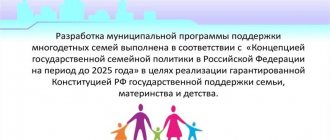A young mother from Omsk and a primary school teacher from St. Petersburg face up to 10 years in prison. One gave the other a daughter. Why such cases are commonplace in Russia and whether it is possible to make such a gift legally, the portal iz.ru found out.
A resident of Omsk decided to get rid of her newborn because she had nothing to support her. I met a teacher from St. Petersburg on the Internet and agreed to give the girl as a gift. She arrived in Omsk and, as the press service of the West Siberian Transport Prosecutor's Office reports, “with the help of forged documents, she took the child to St. Petersburg.”
The incident became known when friends of the mother noticed the child was missing and reported to law enforcement agencies. Now a written undertaking not to leave the place has been taken from both women. Both are accused of “committing another transaction (we are talking about the absence of money in the exchange) in relation to a minor, who is known to the perpetrator to be in a helpless state, using forged documents.”
video
A video frame from a surveillance camera that filmed the process of handing over a newborn child by a resident of Omsk to a teacher from St. Petersburg
Photo: YouTube/SKR
Freely convertible baby
How families win natural children from surrogate mothers
This can be punishable not only by imprisonment from 3 to 10 years, but also by deprivation of the right to hold certain positions or engage in certain activities for up to 15 years, which is obviously important for a primary school teacher.
Why is it worse than surrogacy?
Lawyer Konstantin Svitnev explained to the iz.ru portal why “another deal” is punished so severely, but surrogacy, during which they also agree, only in advance, on the transfer of the child. According to him, a surrogate mother is not in the full sense the mother of the child. “Nothing genetically connects her with the fetus. The circulatory systems of the surrogate mother and fetus do not communicate directly,” Svitnev said, adding that the surrogate mother performs the functions of a nanny, whom the parents entrusted to bear the child.
motherhood
Photo: Depositphotos
In Omsk, a mother who donated a newborn child was put on trial
As lawyer Taras Kotosin recalled, when constructing the rules regulating surrogacy, we proceeded from situations where a family cannot have a child, for example, for medical reasons. And this also distinguishes the transfer of a child carried by a surrogate mother from the transfer and even sale of an already born baby. These cases often have nothing to do with loss of fertility.
Who can become an adoptee?
Children of any age can be placed in a foster family until they reach the age of 18 . When choosing a child, the state of his health is important for future parents, but does not serve as a basis for abandoning him. This will take into account the capabilities of a foster family to care for and raise a disabled child or someone who has other illnesses that require increased attention.
Minors who do not have parents due to their death or unknown absence are transferred to a foster family , and also if they have them, but are deprived of parental rights, convicted or do not have the opportunity to raise their children due to illness or lack of funds.
Reference. Elderly single people are no less in need of care and concern. For such citizens, there is also the possibility of transferring them to foster families. A foster family for older people has the same set of obligations; a procedure for paying remuneration to guardians for the assistance provided is provided.
Was it possible to give a child as a gift legally?
The expert on judicial protection noted that women had the opportunity to legally transfer the child. For this purpose, adoption is carried out in court with the consent of the parents. “The prospective adoptive parents submit an application to the court, to which they attach the notarized consent of the child’s parents. The case is considered with the participation of the prosecutor’s office and guardianship authorities so that the rights of the child are fully respected (to ensure his interests, comprehensive development),” said Taras Kotosin.
court
Photo: Depositphotos
Birth in pain
What is the basis of the child trafficking market in Russia?
In his opinion, women did not formalize the relationship either due to lack of money or out of ignorance. “The judicial procedure is costly both in time (the trial lasts several months) and financially, since you need the help of a lawyer to develop a strategy and prepare documents. This is also a low level of legal culture - many people do not even know about this possibility provided for by current legislation,” the lawyer concluded.
Place a child in a foster family
I am Dmitry Vladimirovich Trushin, born on February 24, 1969. I was married to Trushina Svetlana Ildarovna from 1995 to 2011. From my first marriage I have a minor daughter, Trushina Vladislava Dmitrievna, born in 2009, who lives with me and my wife Trushina Natalya Yuryevna.
The ex-wife has been leading an immoral lifestyle since 2009. He abuses alcohol, does not work anywhere, spends time in brothels, does not care for the child, and leads an immoral lifestyle. Suffers from diseases: ALCOHOLISM, HIV, TUBERCULOSIS OF BOTH LUNGES IN OPEN FORM. in 2011, I contacted the juvenile affairs department of the Volga region. The inspector (I don’t remember my last name, my first name is Olga) sent me to the district police officer for a reference about Trushina Svetlana Ildarov, to the kindergarten and for a bunch of other information. During my visits to the authorities, it turned out that such documents are issued only upon an official request. Thus, my application remained without consideration. In 2012, I contacted the reception office of the City Hall. And only after my appeal to the City Hall, the Department for Minors Affairs registered S.I. Trushina as a dysfunctional parent. Inspector Lily of the Valley was working on my case at the time. A commission on juvenile affairs was held. S.I. Trushina did not appear at the commission and did not provide a document confirming a valid reason for not appearing. In absentia, the commission decided to prosecute him under Article 5.35.
And they sent me a letter stating that further work was being carried out with my family to prevent social orphanhood.
Hence the questions:
1) why neither the PDN nor the guardianship continued the work to deprive Trushina of parental rights. And in response to my appeal to the PDN after the commission with the question of what I should do next in 2012, they answered me, and I quote -
- You won’t deprive her, we have a lot of such cases. And yours will go there on the shelf
2) what kind of social orphanhood are we talking about when the child has a father.
In 2014, I once again applied to the PDN with a statement to deprive S.I. Trushin of parental rights. Based on my application, material was collected proving that Trushina S.I. is not involved in raising a minor child, abuses alcohol, visits brothels, as a result of which she acquired diseases such as HIV and TUBERCULOSIS in the open form of both lungs.
For more than a year, having such diseases, S.I. Trushina lived with her minor child and with her elderly mother F.M. Kashafutdinova, without following safety rules, because she was intoxicated. Although all this time I asked more than once to give me the child. The child was hidden from me and the diagnoses were deliberately concealed by S.I. Trushina and F.M. Kashafutdinova, fearing that I would begin to defend the child’s rights and file another application for deprivation of parental rights.
Having learned the diagnosis from Trushina’s eldest daughter Valeria, I managed to take Trushina Vladislava from her grandmother Kashafutdinova F.M. to my family (the child has been living in my family for 4 months and considers Trushina N.Yu’s wife to be his mother, which is proven by the psychological and psychiatric examination of the Gale Center, file attached) and start anew the case of deprivation of parental rights.
After the PDN in 2014 finished collecting documents and transferred the case of S.I. Trushina to the commission on juvenile affairs, something unimaginable began.
Having in hand all the documents confirming my words, the commission considered it possible that S.I. Trushina, who has been abusing alcohol for more than 5 years, as evidenced by the characteristics of the district police officer, and repeated presentations to the police while intoxicated, witnesses, as well as tuberculosis in open form, could take the path corrections, which means communicating with the child. That is, the commission believes that the child can communicate with a socially dangerous person.
Based on the actions of the commission, the conclusion suggests itself that the child must communicate with his sick mother, get sick, and only after that the commission will have the facts to deprive S.I. Trushin of parental rights
AND WHERE IS THE PROTECTION OF CHILDREN'S RIGHTS AFTER THIS?
NOT A SINGLE ACTION WAS DONE IN THE INTERESTS OF THE CHILD BY THE BODIES THAT ARE OBLIGATED TO ACT IN THE INTERESTS OF CHILDREN.
I ask you for assistance in this problem because I do not have a legal education, I don’t know what doors to knock on next... I went through all possible authorities with no result... Please help my child live in a normal, healthy, loving family!
Million for my son
Why the women resorted to forging documents remains to be determined by investigators. Perhaps they will also take into account the fact that the deal, at least according to currently available data, was free of charge. Because of this, the story of a young mother from Omsk and a teacher from St. Petersburg stands out against the backdrop of a series of similar cases that have occurred in Russia recently. Moreover, the amounts of transactions falling under the article on human trafficking differed strikingly.
So, in the spring of 2017, a native of Uzbekistan sold her child for 11.5 thousand rubles to her compatriots in St. Petersburg. The result was a criminal case for both her and the childless couple. In the fall of 2018, another native of the same country in the same city sold her child for 280 thousand rubles to a police officer posing as a buyer.
money
Photo: RIA Novosti/Ramil Sitdikov
A woman was detained in Moscow for trying to sell her son for $20 thousand.
The price record so far belongs to a native of Kazakhstan, Yulia. She asked for $20 thousand for abandoning her son, or almost 1.2 million rubles at the exchange rate on April 6, when the woman was detained. The operatives posing as buyers found her through an advertisement in the closed group MAMMAMIA (it was not possible to find an active community with relevant content in September 2021). And they corresponded for four months. After discussing all the details, Yulia flew from Almaty to Moscow, where the transfer of the child took place. She explained her action by saying that after the birth of her second child, the family began to live from hand to mouth. At the same time, she said that after a while she wanted to sue her son. After the arrest of the boy, whom his 33-year-old mother named Ilya-Lucifer, he was placed in an orphanage due to the lack of relatives in Russia.
A truly family award
For significant contributions to the development of family structure, residents and organizations are awarded the “Wings of the Stork” award. The laureates receive a memorable sign - a figurine depicting a flying stork and a child.
The winners of the “Wings of the Stork” award in one of the most significant nominations “Adoptive parents, guardians (trustees), foster or foster families for special personal contribution to the development of the family structure of orphans and children without parental care in the city of Moscow” became Natalia’s family and Valery Zhuravlyov. They are raising three natural and 15 adopted children, six of whom have Down syndrome. At the same time, the spouses assisted in the transfer of another 38 children with this diagnosis to other families.
And the award among public organizations was given to the St. Sophia Orphanage, which became one of the first non-state orphanages in Russia for disabled people with severe multiple developmental disorders. Now there are 22 children. Employees are looking for families for them. And those who remain in this institution will be cared for even after they reach adulthood.
Here children have opportunities not only for learning, but also for social adaptation - volunteers help them with this.
This year there is a new nomination - “Person”. The award in this category is awarded for a special personal contribution to the development of a family structure. It was received by Galina Semya, Doctor of Psychological Sciences, Professor of the Department of Psychological Anthropology at Moscow State Pedagogical University.
Postpartum payments
Let's consider what payments are due at the birth of a child. A one-time benefit for the birth of a child is provided to the mother or father upon the birth of the baby. The benefit amount is indexed annually and from February 1, 2021 the increase will be 4.3 % . The exact amount of payment at the birth of a child in 2021 is 17,479.73 rubles.
What do adoptive parents say?
The Elsanukaev family is taking part in a capital project to provide financial support to foster families who have taken in five children, three of whom are teenagers and/or children with disabilities. That is, those who are usually least likely to be accepted into the family. The city provides project participants with a spacious apartment in Moscow under a free use agreement for the entire period while they serve as foster parents.
Currently, 39 families are participating in the pilot project. During the implementation of the project, 285 children were placed in foster families.
Irina and Vyacheslav Eskov entered this project when they had three natural children, as well as three children whom they took in after the death of a relative. And five more?
“We thought about what we could handle and what we could give to the children in the future,” says Irina. – They took five siblings. The eldest is 16 years old, the youngest is 2.5 years old. It was difficult with a teenager whose character had formed. Little Vova was withdrawn and hardly spoke. And now he’s unrecognizable - he’s a mischievous guy, he paints, sings, dances, and goes to speed reading lessons. Sometimes we are even asked if the bar is too high. But he likes it and he copes. Two boys study in a special school. When we got them, they couldn't read or write well. Now is a huge step forward. Let's say Lyosha really loves mathematics, he studies with a tutor, wants to become an engineer, and next year he has chosen to take exams in the exact sciences. We try to ensure that children develop fully, attend physical training and creative classes. Dani has problems with his leg and is disabled, so he goes to burning and singing. Angela and Alena do rhythmic gymnastics and have sports ranks.”
Parents have a lot of responsibilities: take them to clubs, help with homework, communicate with everyone, prepare their favorite dishes. City resources to help parents. City staff will advise you in any situation. Financial support is enough to pay for additional classes, buy quality clothing and eat healthy food. Where can you get the most important thing – strength?
“We don’t bring ourselves to the point where they don’t exist,” Irina reveals a secret. – We find time to relax and get distracted. I can sometimes go to the spa. Or we take the children to kindergarten, school and go to the pool with my husband.”
In the same house with the Eskovs, two more families live - participants in the project, who each have 8 adopted children. Convenient to share experiences.
Mom to nine. A story about children who found parents and each other Read more
Can a single woman obtain guardianship?
Article 127 of the RF IC lists all the requirements for those wishing to take custody of a child. Registration of guardianship is possible only through the court. This is regulated by the twenty-ninth chapter of the Civil Procedure Code. Many adults and capable persons have the right to take custody of a minor child.
Potential applicants are subject to the following requirements:
- a person who wants to obtain guardianship must have a permanent job, as well as a stable income, which will be enough for the child;
- under no circumstances should he be deprived of parental rights in the past, as this may serve as a serious reason for refusal;
- the person must live in good conditions. His housing (apartment, private house) must certainly meet all requirements. It is important to create the most comfortable living conditions for the future child. He must have his own separate room;
- Another important condition is the absence of a criminal record. The applicant will be denied if he has previously committed a crime against the health and life of another person.
Please note that this list does not include single women. It is for this reason that they can count on approval of the application.
The most important thing is that the candidacy of a representative of the fairer sex meets the requirements of current legislation.





